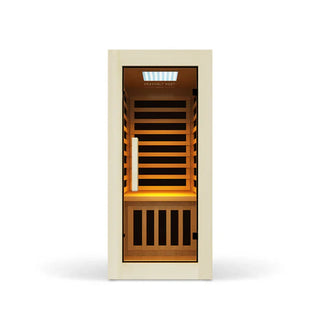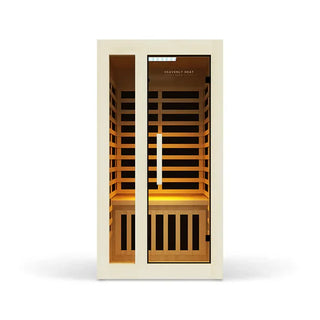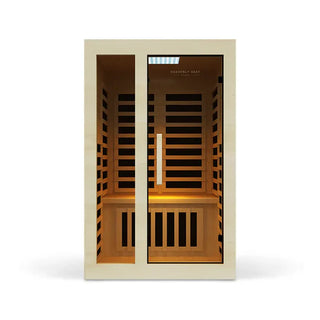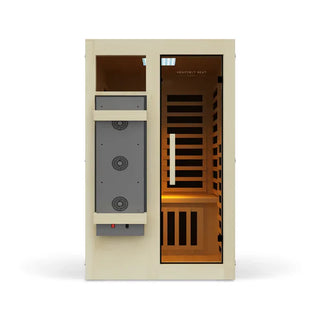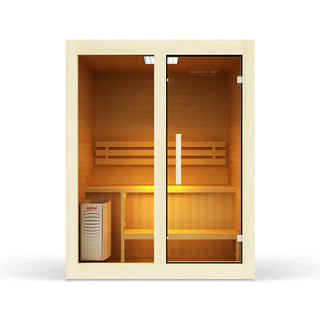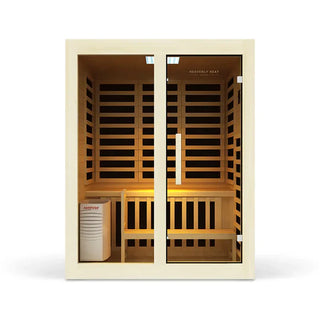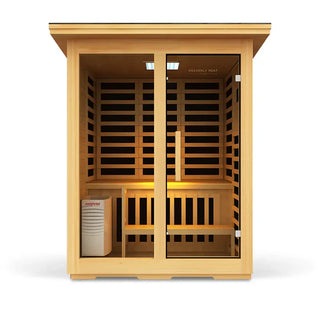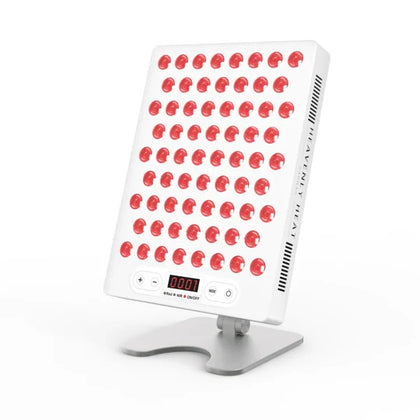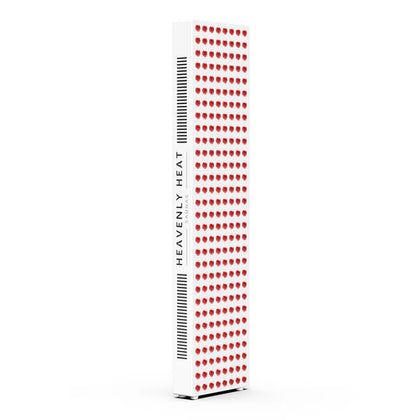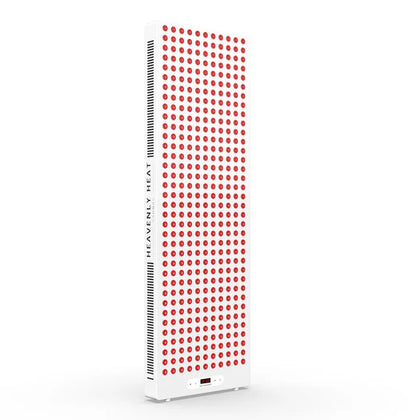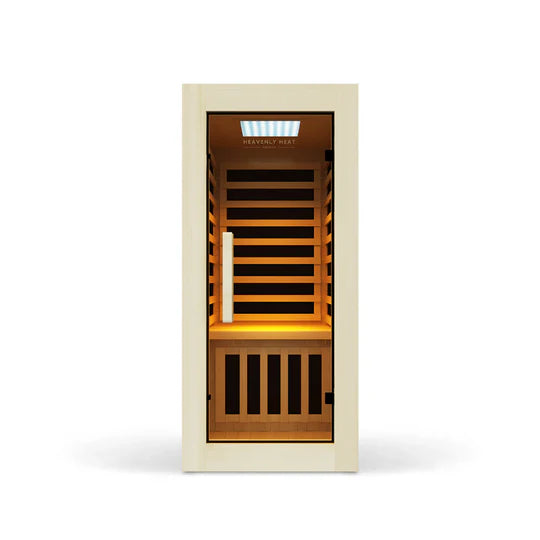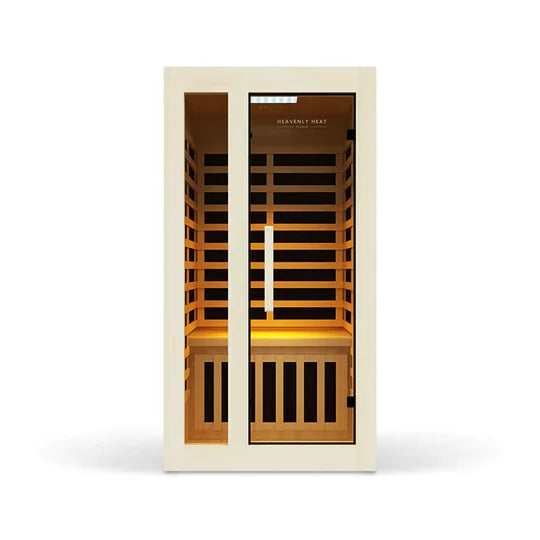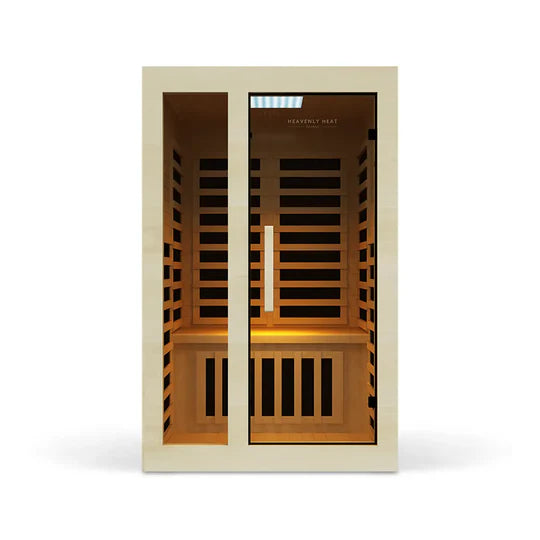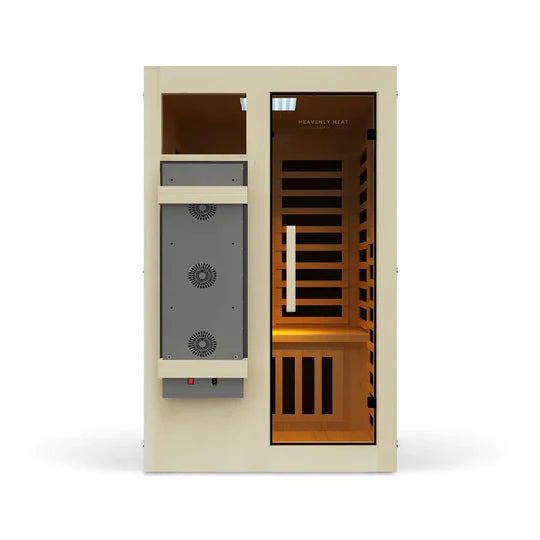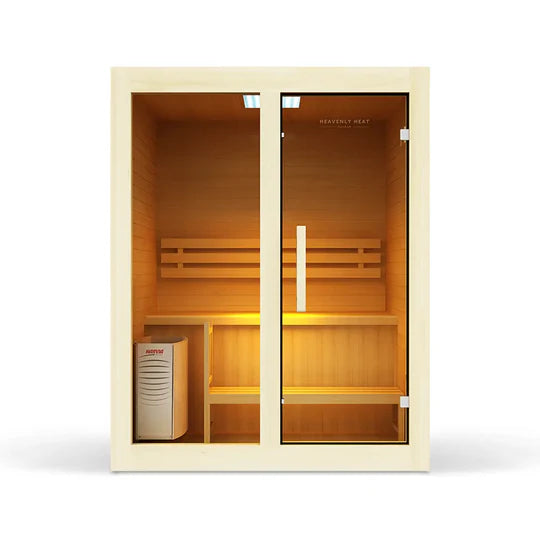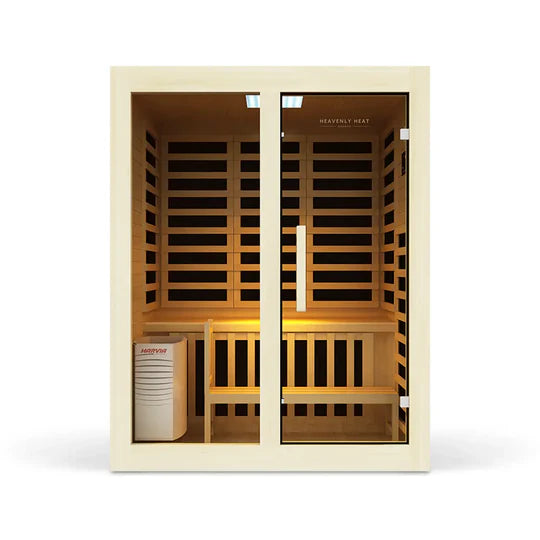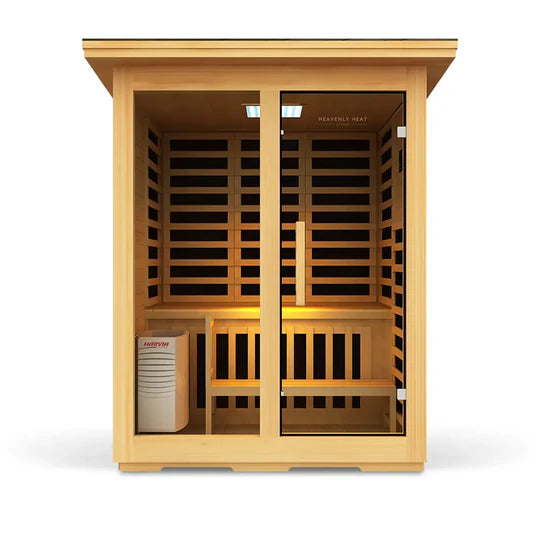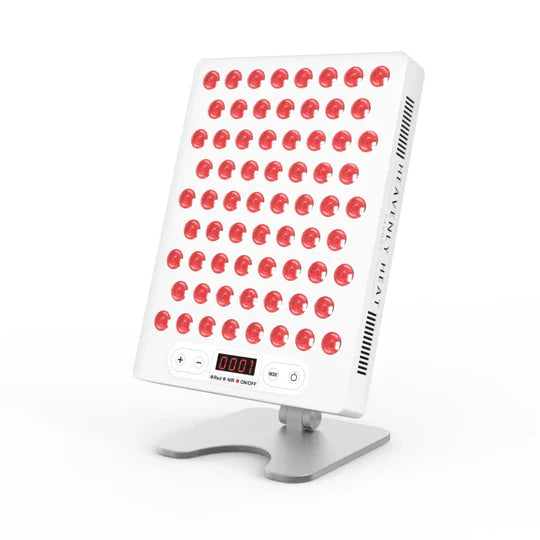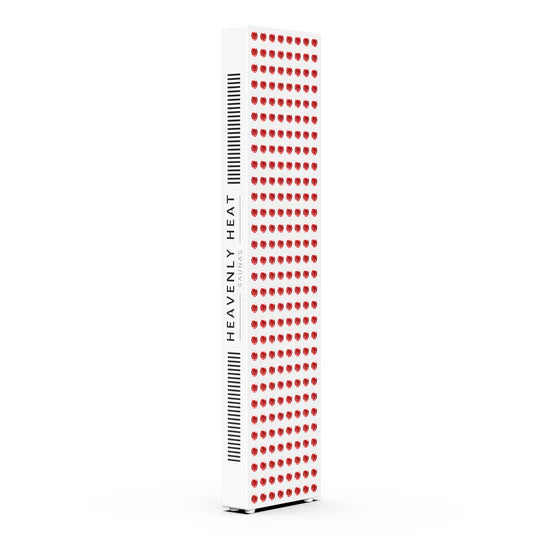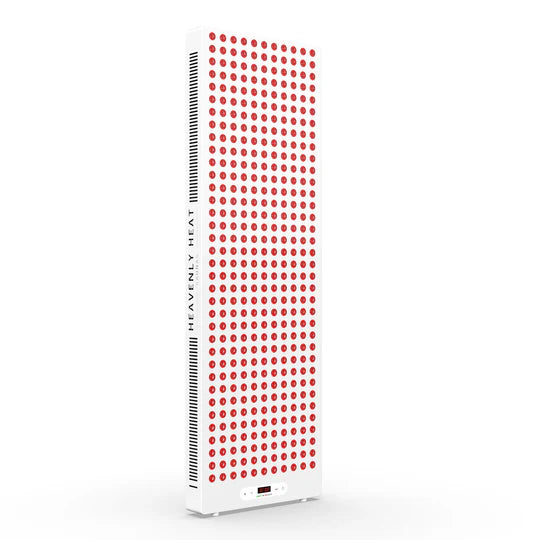Sauna When Sick: Exploring Safety, Benefits, and Effects on Cold and Flu Symptoms
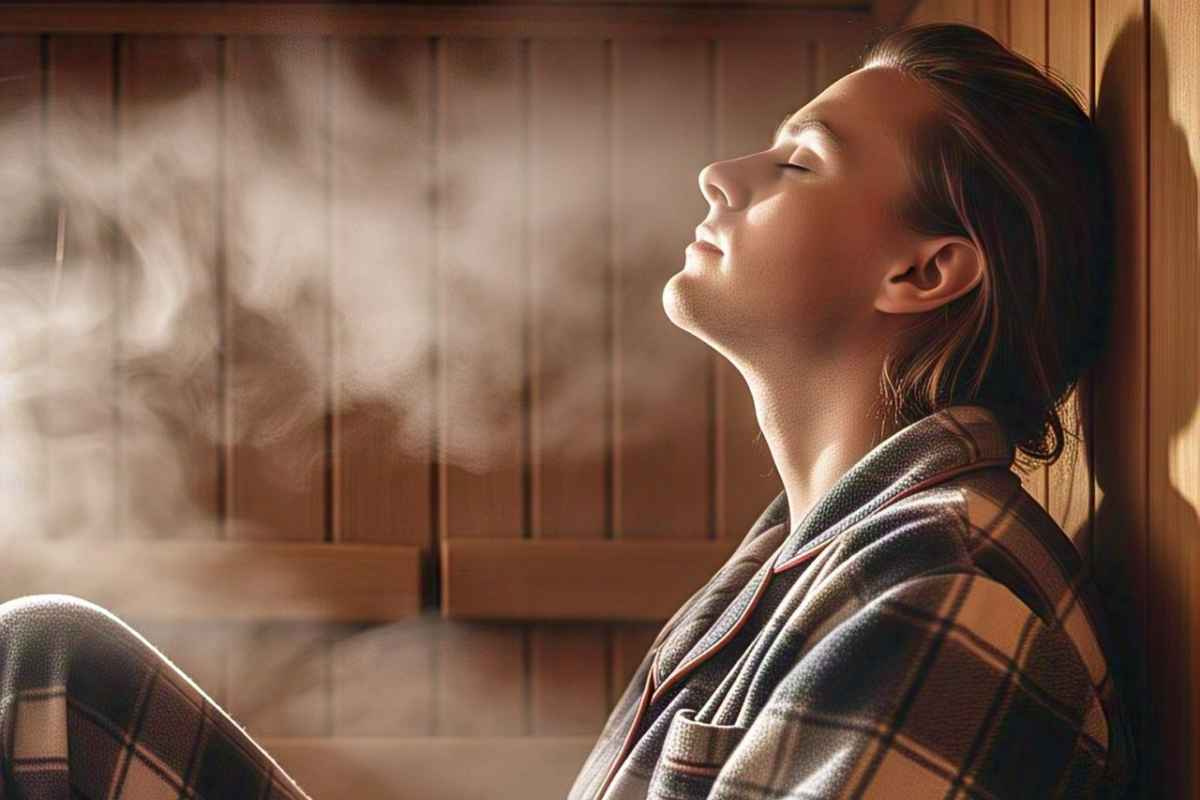
Table of contents
Feeling under the weather and wondering if a sauna could help? While the heat might seem like a quick fix, it could worsen symptoms like dehydration, fatigue, and congestion.
If you’re already battling a fever, respiratory issues, or dizziness, a sauna might not be the best choice.
However, with the right precautions, saunas can offer benefits. Let’s dive into how to use them safely while sick.

Key Takeaways
Avoid Saunas with a Fever: Heat can make fever symptoms worse and increase dehydration risks.
Infrared Saunas Are Gentler: They operate at lower temperatures, making them a better option if you choose to use a sauna while sick.
Breathing Can Improve or Worsen: Sauna heat may open airways for some but can worsen congestion for others, especially with respiratory infections.
Hydration is Crucial: Sauna use can cause dehydration, which can make illness symptoms worse. Drink plenty of water before and after.
Short Sessions Only: If using a sauna while sick, limit sessions to 10–15 minutes to avoid excessive sweating and fatigue.
- Listen to Your Body: If you feel dizzy, weak, or uncomfortable, it’s best to skip the sauna and focus on rest instead.

Is It Safe to Use a Sauna When You’re Sick?
If you have a fever, it's best to avoid the sauna since the heat can make it worse.
Additionally, if you feel weak, lightheaded, or extremely fatigued, using a sauna might not be a good idea.
Dehydration is another risk, so it's important to drink enough water before and after your session.
Listening to your body is key—if you start feeling uncomfortable, it’s best to leave the sauna.
I’ve always found it surprising how tempting it can be to push through when you’re feeling off, thinking the heat might “sweat it out,” only to realize your body’s whispering a clear no—those moments taught me to trust that instinct and step back when something feels wrong.
Infrared vs. Traditional Sauna: Which is Better When Sick?
Both infrared and traditional saunas offer heat therapy, but infrared saunas operate at lower temperatures, which may be more comfortable when you're sick.
Traditional saunas create a more intense heat, which can be beneficial for sweating. If you choose to use a sauna while sick, infrared may be a gentler option.
YouTuber David Maus Jr. shared his personal experience using an infrared sauna while battling a cold.
He aimed to boost his immune system and found that the heat eased congestion and helped him relax.
However, he also realized the risks firsthand. “Sweating heavily led to dehydration, and I had to be vigilant about replenishing fluids.
When I had a fever, I skipped the sauna, fearing it would worsen. It's a balancing act; saunas can offer relief, but when sick, you must listen to your body, stay hydrated, and avoid overheating.
If you feel weak or nauseous, it's best to avoid it altogether. It's definitely not a one-size-fits-all approach,” he explained.
His experience highlights the importance of knowing your limits and adjusting sauna use accordingly.
How Saunas Affect Breathing and Lung Health
Sauna heat can help open airways and loosen mucus, making it easier to breathe for some people.
However, for others, especially those with asthma or respiratory infections, the heat might worsen congestion.
If you find that sauna sessions make your breathing more difficult, it’s best to avoid them until you feel better.
Can a Sauna Make You Dehydrated?
Sauna sessions cause sweating, which can lead to dehydration if you don’t drink enough water.
If you're already sick, dehydration can make symptoms worse. To stay hydrated, drink plenty of water before and after your sauna session.
If you’ve been experiencing vomiting or diarrhea, it's best to skip the sauna until you’ve fully recovered.

How Long Should You Stay in a Sauna When Unwell?
If you decide to use a sauna while sick, keep your session short—no more than 10 to 15 minutes.
Long sessions can lead to excessive sweating, which may worsen dehydration and fatigue.
Pay attention to how you feel, and step out if you start feeling weak or uncomfortable.
Signs You Should Avoid the Sauna When Sick
High Fever and Severe Illness
High fever signals that your body is already struggling to regulate temperature, and adding sauna heat can push it past safe limits.
According to research on thermoregulation, the autonomic nervous system maintains core body temperature within a narrow range to support normal cellular function.
When this system is overwhelmed, extreme heat exposure can lead to hyperthermia, which may cause dizziness, nausea, confusion, and even heat stroke.
If your body is already fighting an infection, additional thermal stress can slow recovery and worsen symptoms.
Instead of using a sauna, focus on rest, hydration, and allowing your fever to subside naturally.
Respiratory Infections and Congestion
Sauna heat may open airways – Helps loosen mucus, making breathing easier for some.
Dry heat can worsen congestion – May irritate the respiratory tract, making it harder to breathe.
Not suitable for severe congestion – If symptoms worsen, sauna use should be avoided.
Dizziness and Dehydration Risks
Sauna use can lead to dehydration, especially if you're already sick and losing fluids.
Dehydration increases the risk of dizziness and fainting, so it’s important to drink enough water before and after your session. If you feel lightheaded or dizzy, leave the sauna immediately.
Weakened Immune System and Recovery Delay
When you're sick, your immune system is already working to fight off the illness. Sauna use can put extra stress on your body, which might slow down recovery. If you're feeling weak, it's best to rest instead of using a sauna.
Gastrointestinal Issues and Nausea
If you’re feeling nauseous, sauna heat may make it worse. The high temperature can also worsen symptoms for those with acid reflux or other digestive issues.
If you have diarrhea or stomach flu, sauna use is not recommended, as it may increase dehydration and discomfort.
Medication Side Effects and Heat Sensitivity
Certain medications can make you more sensitive to heat, increasing the risk of dizziness, dehydration, and overheating in a sauna.
For example, a systematic review and meta-analysis found that drugs with strong anticholinergic properties, non-selective beta-blockers, adrenaline, and anti-Parkinson’s agents impaired thermoregulation during heat stress.
The study, which reviewed 35 trials, showed that these medications raised core temperature, especially in warm environments, due to reduced sweating and heat dissipation.
According to this research, people taking these medications should be cautious with heat exposure, as it may worsen symptoms and lead to dangerous overheating.
Chronic Conditions That Worsen with Heat
If you have asthma, heart disease, or high blood pressure, saunas may not be safe when you're sick.
Heat exposure can trigger asthma symptoms or put extra strain on the heart. If you have a chronic condition, consult your doctor before using a sauna.
What Research Says About Saunas and Illness Recovery
"Sauna use increases heart rate and blood flow, aiding circulation, reducing joint pain, and promoting relaxation through vasodilation," says Dr. Brad Weening, a board-certified physician specializing in musculoskeletal health.
Improved circulation can support the immune system by delivering oxygen and nutrients more efficiently, which may aid recovery from colds or flu.
Some research suggests that regular sauna use can help reduce the severity and duration of illness by enhancing immune function.
However, using a sauna while actively sick isn’t always beneficial—if dehydration or fatigue worsens, it may do more harm than good. The key is to listen to your body and use saunas in moderation.
FAQs
Can a sauna help with muscle aches or joint pain while I'm sick?
A sauna can ease muscle aches and joint pain when you're sick. The heat relaxes tight muscles, reduces soreness, and loosens stiff joints. Infrared saunas penetrate deeper, aiding muscle recovery. Increased blood circulation delivers oxygen to sore areas, speeding healing. Sauna sessions also help combat post-viral fatigue by improving relaxation and energy levels.
Is it safe to use a sauna if I’m dealing with a sinus infection or allergies?
Using a sauna with a sinus infection or allergies can help or worsen symptoms. Heat and steam open nasal passages but may also dry mucus and cause irritation. Steam saunas are usually better for sinus infections, as moisture loosens mucus. Those with allergies should be cautious, as hot air can sometimes worsen symptoms. Listen to your body.
Are there any alternative methods to benefit from heat therapy while sick, without using a sauna?
If you’re sick and can’t use a sauna, try other heat therapy options at home. A warm bath relaxes muscles, eases aches, and opens airways. A hot shower’s steam clears congestion and soothes the throat. A steam inhaler delivers targeted moisture to the sinuses for easier breathing. A humidifier prevents dryness and irritation. An electric blanket provides steady warmth for comfort and recovery. Stay warm and recover faster.
Can sauna use help boost my immune system if I’m mildly sick?
Saunas can boost immune function by raising body temperature, helping fight infections. Sweating may flush out toxins and clear congestion, easing mild cold symptoms like a stuffy nose and body aches. However, if you have a fever or feel weak, rest is better. While not a cure, saunas may support faster recovery through improved circulation and relaxation.
